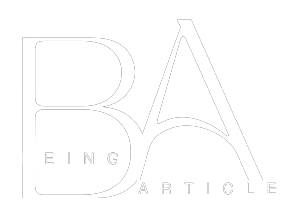Does Article 15 Affect Security Clearance?
If someone is applying for a security certificate, they could consider whether previous actions, like Article 15, could impact the eligibility of their application for clearance. Article 15 can be described as a non-judicial sanction that military commanders can impose on minor offenders. Although Article 15 is not a criminal conviction, it’s found in a person’s military service record. Therefore, it can also be taken into consideration in security clearance determinations.
We will now look at how to apply Article 15 on security clearance and how it affects clearance, the criteria that are considered when determining security clearance, and how to handle Article 15 in security clearance applications.
Understanding Article 15 And Its Implications On Security Clearance
What Is Article 15?
Article 15 is one of the Uniform Code of Military Justice (UCMJ) provisions that permit commanders to impose non-judiciary punishment (NJP) on military personnel for minor infractions. NJP is designed to serve as an alternative to court-martial procedures and can lead to various penalties, including reprimands, additional duties, reductions in rank, and the forfeiture of wages.
The non-judicial penalty is a disciplinary decision that a commander in a military unit makes without the requirement for a court martial. It can tackle minor violations that do not reach the degree of a crime. However, they still need discipline. The goal of the NJP is to keep discipline and order in the military while avoiding the cost and time involved in court-martial hearings.
The Article 15 proceeding is initiated by the commander who believes that an individual has committed an offense of a minor nature. The individual is given an opportunity to be informed of the charges being brought against them and a chance to give evidence and testify to defend themselves. Suppose the commander concludes that the individual was guilty of the offense and is found guilty. In that case, they may issue a range of sanctions that include reprimands, additional tasks, reductions in rank, and forfeiture of their pay.
It is crucial to remember that a soldier receiving NJP per Article 15 has the right to reject the penalty and seek an alternative court-martial. But, this choice might not serve the soldier’s greatest interests since court-martial proceedings could lead to more severe penalties, including confinement and a dishonorable discharge.
How Does Article 15 Affect Security Clearance?
Article 15 may influence the security clearance eligibility of an individual as it is considered an act of derogation. It could cause concerns regarding the person’s judgment, reliability, or trustworthiness. These are all aspects that are assessed when determining the security clearance process.
When Does Article 15 Impact Security Clearance?
Article 15 is a clause within the Uniform Code of Military Justice (UCMJ) that permits commanders to impose non-judicial sanctions (NJP) on military members for minor violations. NJP is designed to provide an alternative to court-martial procedures and can lead to various sanctions, such as reprimands, additional duties, reductions in rank, and the forfeiture of wages.
In the case of security clearance, the requirements of Article 15 can impact a military personnel’s ability to gain or keep authorization to secure. Security clearances are an assessment by the government to determine whether the individual can access classified information. It is required for military employees in specific tasks, such as intelligence and counterintelligence.
The effect of Article 15 on security clearance is contingent on various factors, such as the severity of the offense and the degree of security clearance requested or held, and the general reputation for conduct and reliability.
In the case of a minor offense like a first violation for a relatively small violation of the military rules and procedures, the violation of Article 15 is unlikely to cause the revocation or denial of security clearance. However, it could result in delays in obtaining clearance in that the person is required to submit that NJP before the security clearance officer, who will review the incident and decide whether the incident impacts the person’s eligibility to receive clearance.
For more serious crimes involving drugs, theft or violence, or even violence, the use of Article 15 can have a greater impact on security clearance. These crimes can raise questions about the person’s judgment, reliability, and capacity to secure classified information. In some instances, violations of Article 15 can result in the cancellation or denial of the security authorization.
In addition, even if Article 15 does not result in the denial of security clearances may be a hindrance to the person’s professional development and opportunities for the future. Security clearances are often required for certain positions and positions within the military or government. An extensive history of discipline issues such as NJP is a factor that can hinder someone from gaining these jobs.
It is vital to understand that the impact of Article 15 on security clearance is not automatic or predetermined. Every case is assessed in a specific case, considering the circumstances surrounding the incident and the overall conduct record. Things like the person’s willingness to accept responsibility for their actions, show guilt, and prove the existence of rehabilitation are all considered when determining the significance of Article 15 on security clearance.
The Factors Considered In Security Clearance Determinations
The Adjudicative Guidelines And Security Clearance Determinations
The adjudicative guidelines are guidelines that federal agencies use to assess an individual’s ability for security clearance. The guidelines provide 13 aspects that can affect an individual’s admissibility, such as their loyalty towards the United States, their allegiance to the United States, foreign influence or personal conduct, and criminal behavior.
The Role Of Mitigating And Aggravating Factors
When assessing the security clearance eligibility of a person, The adjudicators will consider aggravating and mitigating factors. These include acknowledging their mistakes, restitution efforts, or having a track history of good conduct. The aggravating factors are the nature or frequency of the crime and the absence of remorse and prior misconduct.
How To Address Article 15 In Security Clearance Applications?

Disclosing Article 15 In Security Clearance Applications
Security clearance applications require applicants to make public any disciplinary action made against them, including Article 15. In the event of not disclosing the disciplinary actions under Article 15 could lead to the eviction of a security clearance or the revocation of an existing security clearance.
The Importance Of Providing Context In Security Clearance Applications
When revealing information under Article 15, providing enough background and information about the offense is essential. This could include describing the circumstances that led to the crime, the individual’s acknowledgment of their wrongdoing, and any factors that mitigated the situation. This will help adjudicators fully understand the circumstances and make an informed choice regarding the person’s security clearance.
Mitigating Factors And The Role They Play In Security Clearance Decisions
If you’re seeking security clearance, There are a variety of variables that could affect your admissibility. One of these is your criminal record, including convictions, charges, or legal concerns. One particular issue that could be raised is whether you’ve been found guilty by Article 15 of the Uniform Code of Military Justice (UCMJ).
Article 15 can be described as a non-judicial sanction imposed on military personnel for various violations. Although it’s not technically a criminal conviction, it could cause concern for those reviewing the security clearance applications. There are, however, mitigating factors to take into consideration when assessing your ability to be considered.
Examples Of Mitigating Factors
Mitigating factors could reduce the negative impact of information that could affect an application for security clearance. In the context of Article 15, there are several elements that could be considered for example:
The gravity of the crime
How long ago was the penalty imposed?
– If you’ve had any additional legal problems since the sanction
– Whether you’ve addressed any underlying issues that might have contributed to the offense
Your complete experience in the military and conduct
The Impact Of Mitigating Factors On Security Clearance Decisions
In the end, the effect of mitigation factors on the security clearance application you submit will be contingent on your particular case’s circumstances. Although the possibility of an Article 15 punishment may raise questions, if substantial mitigating factors exist, the punishment may not be sufficient to make you ineligible for a security clearance.
It is important to remember that this issue has no universal solution. Every case is evaluated uniquely, and ultimately, it’s at the agency’s discretion to decide if you’ve been punished under Article 15. Punishment is a significant enough matter to impact your security clearance’s admissibility.
It is crucial to be transparent and truthful about any legal concerns you’ve faced previously and give as much detail as possible about any limiting issues that might be in play. With the assistance of a knowledgeable security clearance lawyer to guide you through the process of applying and improve the likelihood of a favorable outcome.
In conclusion, even though Article 15 does not automatically make an individual ineligible for the security clearance they need, it could nevertheless impact the process for determining security clearance.
Candidates can take steps to minimize the negative effect on the application process Article 15 by providing context and identifying the factors that mitigate its impact. Understanding the effect of Article 15 on security clearance and taking the necessary steps will aid individuals through the process of applying for security clearance and improve their chances of getting clearance.
FAQ’s
What is Article 15?
Article 15 is a provision under the Uniform Code of Military Justice (UCMJ) that allows commanders to impose non-judicial punishment (NJP) for minor offenses committed by military personnel.
How can Article 15 affect security clearance?
If a military member receives an Article 15, it can be considered as an adverse action that may affect their security clearance eligibility or clearance renewal. The severity of the NJP and the nature of the underlying offense can determine the impact on security clearance.
Can a single Article 15 lead to security clearance denial?
In most cases, a single Article 15 is not enough to result in security clearance denial. However, multiple NJPs or a pattern of misconduct can raise concerns about an individual’s reliability, judgment, and trustworthiness, which are all factors considered in the security clearance process.
What if a military member is falsely accused of an offense and receives an Article 15?
If a military member believes that they were unfairly accused and punished under Article 15, they can appeal the NJP decision and request a hearing. If the appeal is successful and the NJP is set aside, the adverse impact on their security clearance may be mitigated.
How can military members mitigate the impact of an Article 15 on their security clearance?
Military members can mitigate the impact of an Article 15 on their security clearance by showing evidence of rehabilitation and corrective action taken, as well as demonstrating a track record of good conduct and adherence to military standards.
What should military members do if they receive an Article 15?
Military members who receive an Article 15 should consult with a military defense attorney to understand their rights and options, as well as the potential impact on their security clearance. They should also follow the chain of command and take any corrective actions necessary to address the underlying issues that led to the NJP.


















